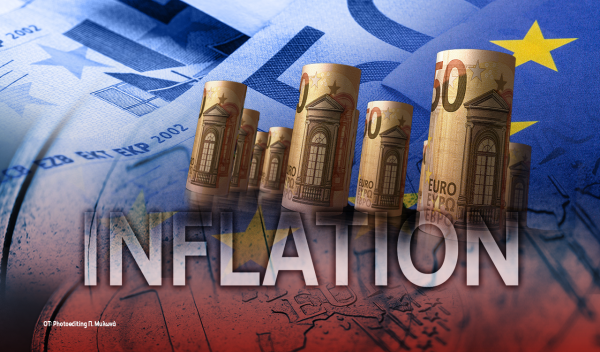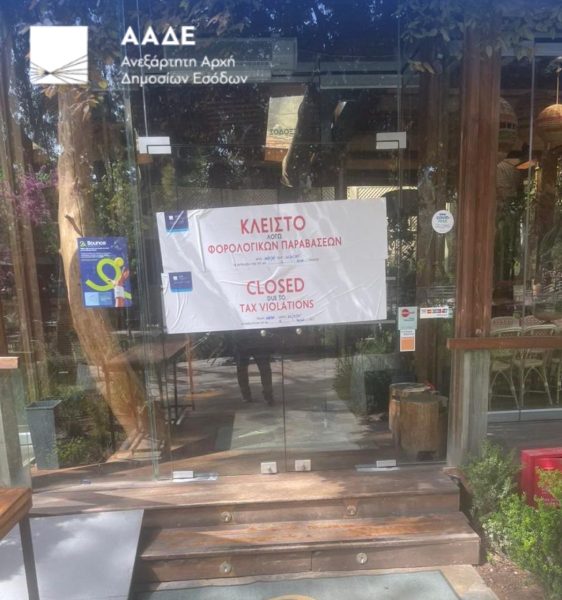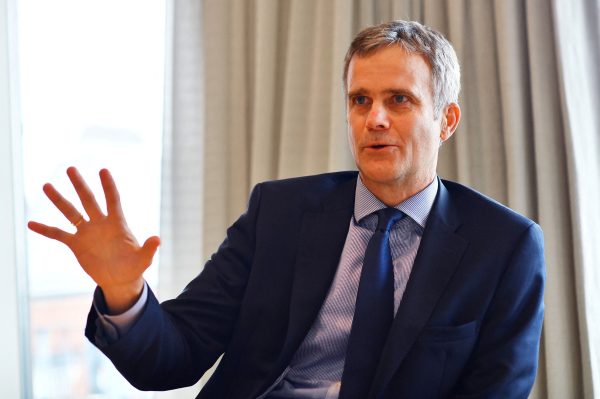
More Europeans are willing to take a trip this year than last and for this purpose their habits have also changed. According to a survey by the European Travel Commission (ETC) 77% of Europeans intend to take a trip in the first 6 months of 2023. This represents a sharp increase of 16% compared to last year’s figures.
At the same time, Greece remains in fifth place among the ten most popular destinations for European tourists, with Croatia “dangerously” close, which is in sixth place.
Auspicious start for tourism in 2023
Travelers also show an increasing desire to travel outside their own country, with 63% of respondents now preferring international travel within Europe. This represents double-digit growth of 13% in just one year.
Remarkably, their planned holiday budget remains unchanged, showing a determination to travel despite the financial uncertainty. Up 6% on a year ago, 37% of Europeans will continue to spend between €1,000 – €2,000 per person per trip on their next holiday. A further 19% will spend more, exceeding the €2,000 limit.
Of all Europeans, Poles are most enthusiastic about traveling (83.2% say they will travel in the next six months), followed by Italians (80.4%), Spaniards (79.2%) and Britons and Germans with 79.1 %.

Europeans aged 35 and over have a greater desire to travel in the coming months than their younger counterparts, who show higher levels of travel uncertainty.
The majority of Europeans (66%) are planning trips from March onwards.
Interest in visiting non-neighboring destinations is increasing significantly compared to a year ago.
The ten most popular destinations
France 9.9%
Italy 8.9%
Spain 8.4%
Germany 6.4%
Greece 5.8%
Croatia 5.6%
Austria 4.8%
Portugal 4.7%
Turkey 3.4%
Belgium 3.2%
The vast majority (72%) of Europeans plan to travel for leisure in the short term, with Sun & Beach, City Break and Culture & Heritage trips being Europeans’ top choices for January-June 2023.
Despite economic concerns, Europeans expect to spend the same amount of time and money on vacation as last year.
35% of Sun & Beach travelers will spend over €1,500 on their next holiday, compared to 29% of Nature & Outdoors travelers and 21% of City Break travelers.
Among the age groups, Europeans +54 are more likely to take longer vacations and have a budget of more than €2,000.
The proportion of Europeans who have fully/partially booked their next trip (44%) has increased by 7% compared to a year ago, while 47% of Europeans have chosen their destination at the beginning of summer but have not still booked.
Concerns of European travelers
For 23% of Europeans, the increased cost of travel is a primary source of concern, while 18% are mainly concerned about their financial situation.
Europeans also remain cautious about the war in Ukraine and 31% of respondents will make changes to their upcoming trip because of the conflict.
Commenting on the research, Luís Araújo, President of ETC, said: “Recent data shows that travel remains a top priority for Europeans in the first half of 2023. This is welcome news, especially considering that much of the intended travel has planned within Europe. These trends paint a hopeful picture for the industry this year and demonstrate its resilience in the face of global economic challenges. Now, to capitalize on consumer trust and early bookings, the industry will need to closely monitor and anticipate changes in consumer needs and adjust their offerings accordingly.”
Europeans are changing their habits to keep traveling
The survey shows that the current economic climate remains a major concern for travelers. Rising travel costs worry 23% of Europeans, while a further 18% say they are concerned about their personal finances and financial situation.
Travelers are responding to economic challenges with a more proactive and flexible purchasing behavior. Europeans commit to their trips earlier than a year ago: 44% have already fully or partially booked their next holiday, an increase of 7% compared to 2022. When choosing a destination, attractive offers and opportunities (17%) are a key concern, second only to pleasant weather (18%).
Another behavioral change is in spending habits during travel. Most respondents plan to cut back on shopping at the destination (18%), book cheaper accommodation (16%) and choose more affordable restaurants (15%) to fit into their holiday budget. Buying all-inclusive packages and visiting fewer attractions with an entrance fee are also considered by 12% and 10% of respondents, respectively.
Travel budgets remain a priority
Even as energy costs soar and basic necessities such as food and clothing follow suit, travel continues to be a high priority for Europeans. Notably, travel is the only discretionary expense that people are willing to maintain (59%) or increase (16%) spending in today’s economic conditions. In fact, 58% of respondents plan to travel at least twice domestically or internationally in the coming months.
In contrast, the outlook is not bright for retail spending on items such as electronics and clothing, personal care services, and leisure and entertainment purchases for concerts, dining out and sports. Less than half of respondents (47%) plan to spend the same amount in these categories, while only 8% are considering increasing their spending.
Greece fifth destination head-to-head with Croatia
Greece is in fifth place in a list of ten most popular European tourist destinations for 2023, according to the European Travel Commission (ETC) survey, with Germans, French, Belgians, Poles and Austrians ranking it in top five of their choices.
The most popular country is France, with a share of 9.9%, followed by Italy, with a share of 8.9%, and Spain, with a share of 8.4%, in second and third place, respectively. In fourth place is Germany, with a share of 6.4%, and immediately next is Greece, with a share of 5.8%.
It is completed by Croatia (5.6%), Austria (4.8%), Portugal (4.7%), Turkey (3.4%) and Belgium (3.2%).
Greece is in fifth place in the preferences of Germans, with a percentage of 7%, in fourth place in the preferences of French travelers (8%), in fifth place for Belgian travelers, in third place among tourist destinations in the Polish and Austrian markets. The survey was conducted in ten European source markets of high traveler volume, Germany, UK, France, Netherlands, Italy, Belgium, Switzerland, Spain, Poland and Austria.
Latest News

Hellenic Food Authority Issues Food Safety Tips for Easter
Food safety tips on how to make sure your lamb has been properly inspected and your eggs stay fresh.

Greek Kiwifruit Exports Smash 200,000-Ton Mark, Setting New Record
According to data by the Association of Greek Fruit, Vegetable and Juice Exporters, Incofruit Hellas, between September 1, 2024, and April 17, 2025, kiwifruit exports increased by 14.2%.

Easter Tourism Boom: Greece Sees 18.3% Surge in Hotel Bookings
Among foreign markets, Israel has emerged as the biggest growth driver, with hotel bookings more than doubling—up 178.5% year-on-year.

Greece to Launch Fast-Track Tender for Offshore Hydrocarbon Exploration
Last week, Papastavrou signed the acceptance of interest for the two Cretan blocks, while similar decisions regarding the two Ionian Sea blocks were signed by his predecessor

American-Hellenic Chamber of Commerce to Open Washington D.C. Branch
AmCham's new office aims aims to deepen U.S.-Greece economic ties and promote investment and innovation between the two countries

Why Greece’s New Maritime Spatial Plan Is a Geopolitical Game-Changer
This landmark development is more than just a bureaucratic step — it's a strategic declaration about how Greece intends to use, protect, and assert control over its seas

Eurozone Inflation Eases to 2.2% in March
Compared to February, inflation decreased in 16 member states, remained unchanged in one, and rose in ten.

Bank of Greece: Primary Gov. Surplus €4.1b Jan.-March 2025
The data released today by the Bank of Greece revealed that the central government’s overall cash balance recorded a surplus of €1.465 billion in the first quarter of 2025, compared to a deficit of €359 million in the corresponding period of 2024.

Greek Government Reissues 10-Year Bond Auction for €200 Million
The amount to be auctioned will be up to 200 million euros, and the settlement date is set for Friday, April 25, 2025 (T+5)

Greece Defines Continental Shelf Limits and Maritime Zones in Landmark EU Document
The Maritime Spatial Planning (MSP) framework represents a comprehensive approach to spatial planning and is crucial for the successful development of a blue and circular economy








![Πλημμύρες: Σημειώθηκαν σε επίπεδα ρεκόρ στην Ευρώπη το 2024 [γράφημα]](https://www.ot.gr/wp-content/uploads/2025/04/FLOOD_HUNGRY-90x90.jpg)

































 Αριθμός Πιστοποίησης
Αριθμός Πιστοποίησης